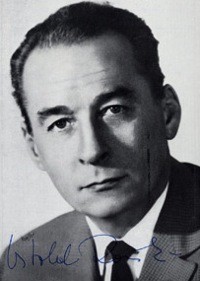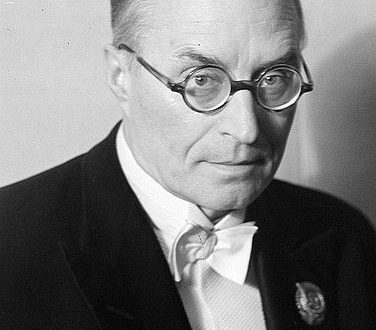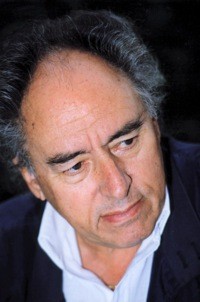
Witold Rowicki |
Witold Rowicki


“The man behind the console is a real magician. He controls his musicians with soft, free movements of the conductor’s baton, firmness and energy. At the same time, it is noticeable that they are not under duress, they do not play under the whip. They agree with him and with what he demands. Voluntarily and with the quivering joy of playing music, they give him what his heart and his brain demand and ask from them through their hands and a conductor’s baton, with the movements of only one finger, with their gaze, with their breath. All these movements are full of supple elegance, whether he conducts a melancholy adagio, an overplayed waltz beat, or, finally, shows a clear, simple rhythm. His art extracts magical sounds, the most delicate or saturated with power. The person behind the console plays music with extreme intensity. So wrote the German critic H.O. Shpingel after W. Rovitsky’s tour with the Warsaw National Philharmonic Orchestra in Hamburg, the city that has seen the world’s best conductors. Shpingel concluded his assessment with the following words: “I am delighted with a musician of the highest rank, with a conductor, which I have rarely heard.”
A similar opinion was expressed by many other critics of both Poland and Switzerland, Austria, the GDR, Romania, Italy, Canada, the USA and the USSR – all countries where Rovitsky performed with the orchestra of the Warsaw National Philharmonic conducted by him. The high reputation of the conductor is confirmed by the fact that for more than fifteen years – since 1950 – he has been almost permanently directing the orchestra he created himself, which today has become the best symphony ensemble in Poland. (The exception is 1956-1958, when Rovitsky led the radio and philharmonic orchestra in Krakow.) Surprisingly, perhaps, only that such serious successes came to the talented conductor very early.
The Polish musician was born in the Russian city of Taganrog, where his parents lived before the First World War. He received his education at the Krakow Conservatory, where he graduated in violin and composition (1938). Even during his studies, Rovitsky made his debut as a conductor, but in the first years after graduating from the conservatory he worked as a violinist in orchestras, performed as a soloist, and also taught a violin class in his “alma mater”. In parallel, Rovitsky is improving in conducting with Rud. Hindemith and compositions by J. Jachymetsky. After the liberation of the country, he happened to participate in the creation of the Polish Radio Symphony Orchestra in Katowice, with which he first performed in March 1945 and was its artistic director. In those years he worked in close collaboration with the great Polish conductor G. Fitelberg.
The outstanding artistic and organizational talent he showed soon brought Rovitsky a new proposal – to revive the Philharmonic Orchestra in Warsaw. After some time, the new team took a prominent place in the artistic life of Poland, and later, after their numerous tours, in the whole of Europe. The National Philharmonic Orchestra is an indispensable participant in many music festivals, including the traditional Warsaw Autumn festival. This group is justly recognized as one of the best performers of modern music, works by Penderecki, Serocki, Byrd, Lutoslavsky and others. This is the undoubted merit of its leader – modern music occupies about fifty percent of the orchestra’s programs. At the same time, Rovitsky also willingly performs the classics: by the conductor’s own admission, Haydn and Brahms are his favorite composers. He constantly includes classical Polish and Russian music in his programs, as well as works by Shostakovich, Prokofiev and other Soviet composers. Among Rovitsky’s numerous recordings are Piano Concertos by Prokofiev (No. 5) and Schumann with Svyatoslav Richteram. V. Rovitsky repeatedly performed in the USSR both with Soviet orchestras and at the head of the orchestra of the Warsaw National Philharmonic.
L. Grigoriev, J. Platek, 1969





